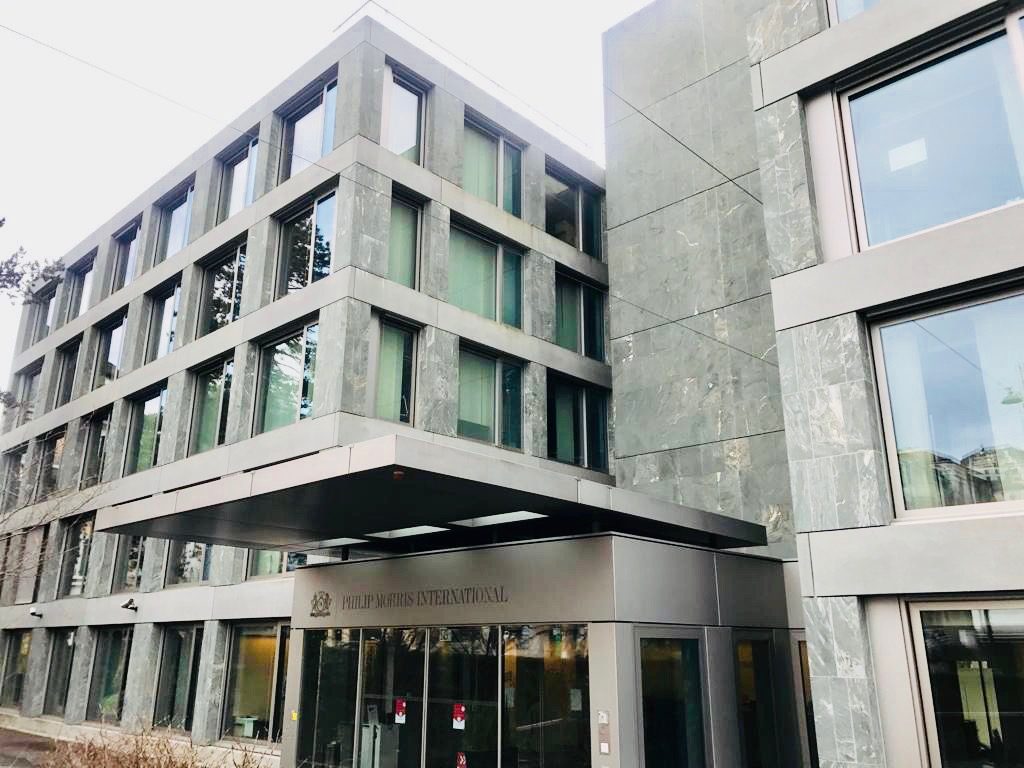Valentina Mikhina & Nadia Bauer
This blog entry investigates processes of valorisation of languages in private international schools. The reviewed studies will shed light on the construction of social prestige of certain languages in this context.
Keywords: Multilingualism ⎯ International Education ⎯ Elite Education ⎯ Multinational Companies ⎯ Social Prestige
If you live in the region of Lausanne, you are probably aware that a lot of multinational companies (MNCs) have their headquarters in and around the city, such as Nestlé, Philip Morris or Tetra Pak. These MNCs welcome a lot of expats from all around the world who come to Switzerland with their families. Philip Morris, for instance, apparently has an agreement that guarantees a place in the ISL (International School of Lausanne) for each expat child. This choice of an international education by expatriate parents do not only occur in Switzerland. A lot of expatriate families, and an increasing number of local families, also send their children to International Schools around the world. But what does exactly an ‘international’ education mean and what are the linguistic implications behind this label? Unfortunately, there are not many studies that investigate this social reality in regard to language.

The aim of this blog entry is to explore the social processes that establish hierarchies between languages in International Schools in Europe. What are the languages taught in International Schools? What languages are, in such contexts of prestige, chosen and favoured as vehicular languages and how do they justify the ‘international’ dimension of such an education? In order to investigate this, we will review a range of relevant literature that has been written on this subject. This will allow us to unveil processes of valorisation or de-valorisation of languages with their social implications.
International education
In the past, the international education system was only available for diplomats’ families who wanted to provide an international education to their children due to their frequent mobility. Throughout the 1990s bilingual education grew in popularity. Europe has become a place where the need for foreign language learning has been present especially in the countries such as Sweden, Finland, Spain and Switzerland. It initially focused on elite bilingualism and bilingual education programmes. The demand for bilingual education has risen after Sweden’s entry into the European Community (de Mejìa 2002).
In the 21st century, the sector of International Schools has greatly flourished. There are over 850 International Schools all over the world (de Mejìa 2002). Most of the schools are bilingual. Moreover, the majority of International Schools offer not only a day student education but a boarding school education as well. International Schools can be classified as monolingual, bilingual or multilingual. In some, there are students of plenty nationalities in International Schools, but there is only one official language in the school. Other International Schools who offer a “bilingual education have dual pack programme” (de Mejìa 2002) which becomes popular in multilingual societies. Education thus becomes considered as international.

The number of International Schools is continuing to grow because of the globalisation processes and related mobility. However, it is commonly thought that International Schools are more qualified, especially in terms of language learning, than state schools. Hence, the international education is now defined as fulfilling the need for multilingual societies in which speakers communicate in three or more languages. These facts explain the success of English-medium schools and International diplomas that are recognised worldwide. However, our society is still not conscious enough of the topic of International Schools because the research was not narrowed down.
International Schools provide the elite status of a country as well as economic growth. They are well-known for their extremely high fees. The most prestigious International Schools are located in multilingual countries such as Switzerland and also in the United Kingdom. International Schools market themselves as offering a lot of opportunities in the future. They are considered to be elite schools that give their pupils prestige. A prestige that can have an impact for accessing into different universities and getting a job later on due to the multilingual and worldwide network communication. This is the main reason why parents choose International Schools for their children. According to de Mejìa (2002), students who are native speakers of vehicular languages can show an interest in learning other languages.
The proficiency in two or more languages is becoming more useful in international communication, especially in business schools as well as in MNCs.
Difficulties of cross-cultural communication are thus presented as a challenge, an appreciation of the relatively of cultural practices is seen as an opportunity for successful business entreprises in multinational companies. Linguistic diversity and multiculturalism are recognised as advantages in today’s business ethos rather than as threats to company or national loyalty (De Mejìa 2002:69).
The English language as Business Lingua Franca
A study of the linguistic landscape was presented recently by Kankaanranta (2015), which distinguished the English language as Business Lingua Franca (BELF), a language which is used for business communication between people who do not share a native language in Multinational Companies’ specifically in the domains of marketing, finances, accounting and management. The study has shown that the increase of the MNCs in the late 90s provoked the development of BELF as a result of increased globalization of the companies. During the 21st century, as business platforms emerged online as forms of social media BELF reinforced English as a main language in the global business.
The use of English ‘has become everyday practice in MNCs, and it has been investigated in three disciplines applied linguistics, international management and corporate communication’ (Kankaanranta 2015:14). Despite this emphasis on communicating in English, individuals still use their respective mother tongue and foreign languages to best navigate and express themselves in multilingual environments. Multicultural competence is created as a result of effective navigation of complicated communicative situations with a variety of cultures and languages involved. BELF prioritises being understood by the other party more than achieving grammatical correctness. It became more important to have a better pronunciation as well as being capable of implying effective paraphrasing skills. Hence, efficient communication is at the core of the global business environment to best achieve the goals and growth of the organisation.

Learning languages: a Swedish case
Another study by of Jonson (2013) discussed in an International School in Sweden involved interviews with six students residing in a Swedish boarding school. This study examines the personal experience of learning new languages, identities as well as both academic and social discriminatory practices in the school. The focus was on teachers’ practices in regard to multilingual adolescents. The Swedish International School employs a bilingual education system using English and Swedish. The school environment’s multilingualism is attributed to the diverse nationalities of its students, which contribute to the school’s social identity. In the interviews, some students identified as bilingual while others considered themselves multilingual. The school has thus adapted an integrated bilingual method of education. Moreover, most of the students feel comfortable with switching languages.
Students are aware of the regulations and norms of their International School. In class they should avoid translanguaging (mixing and switching languages) in formal conversations even though they feel much more comfortable with code switching (‘the use of more than one language in the course of a single communicative episode’ according to Heller 1998) when they are amongst their friends and family. The study shows that, linguistically speaking, the use of the translanguaging does not aid to create distinct separations between the languages during conversations. The result of mixing different languages is a vivid linguistic repertoire.
However, it is important to learn languages by having everyday practice. Consequently, it is important to create specific learning plans, notably to learn through everyday practice during real conversations. The study further proved that students should learn to separate the linguistic repertoire to understand the nuances of both languages and use them to benefit their future employment opportunities. An additional interesting point is that despite the bilingual education, English is usually a dominant choice of students in some aspects as in the education and social life. For example, many students prefer to read novels in English rather than Swedish. This is also apparent in their online social life Computer Mediated Communication (CMC) where their texts can greatly improve the international nature of the school.
Prestigious languages in Catalonian International Schools
Sunyol also examined in her PhD thesis the use of prestige languages, especially English, in International Schools, however with a focus on their role within the educational system. She studied two International Schools in Catalonia, Spain. Her ethnographic study concluded that becoming international for these schools was a way of maintaining themselves after the 2008 crisis (2019:284). After the crisis, being an international became a characteristic of elites. Internationalisation now provides an instrument for class reproduction for the upper classes, as well as a tool for the middle classes to be able to circulate freely around the world in educational and working domains. The role that languages play in these processes of elitisation is capital.
Sunyol remarked that the introduction of English as a language of teaching in these schools allowed them to label themselves as ‘international’. Furthermore, English also allowed the schools to present themselves as distinctive from state education, differentiating themselves in regard to the skills provided and therefore justifying their price. Language practices in such schools are therefore hierarchised and strict policies regulate them. It is believed that having an excellent oral English is key to be successful in the labour market and that it maximises opportunities (2019:286). If this language ideology (i.e., myths and beliefs on what language is, how it works and how it is used) and similar policies also operate in the Swedish International school that Jonson (2013) studied, they could explain why students choose English over Swedish in certain situations.
In International Schools in Catalonia, due to the belief that a good English helps on the job market, the language practices of the students are severely framed to resemble those of global multilingual elites. In one of the schools, this mean having the students speak with a British accent. In another school this involves ‘passing as a native’ (Sunyol 2019:286). The idea behind these policies is to turn the students into efficient neoliberal workers (i.e., workers that will be successful in the current globalised economy) thanks to their linguistic skills.
Codó and Sunyol (2019) focused on how languages are valorised in one of those private schools in Catalonia. This time, they investigated the valorisation of Mandarin Chinese within the school programme. They concluded that, just like English, Mandarin is promoted for economic reasons. It is used by the school to distinguish itself from state schools, similarly to English (Sunyol 2019:285), but also to make a difference in the market of private schools (Codó and Sunyol 2019:441). The Mandarin programme therefore allows the school to attract more clients (i.e., parents willing to pay for an expensive education) and make more profit. Codó and Sunyol observed that this desire to stay ahead of other International Schools is relevant to a context in which elite education must constantly work on itself to secure and justify its position. The uniqueness of this Mandarin programme allows the school to perform its elitism and to defend it (Codó and Suyol 2019:441).

The Mandarin programme is also used to promote the internationality of the school on a symbolic level, praising the benefits of the pupils’ open-mindedness it encourages. The other justifications given are the cognitive advantages of learning Mandarin from a young age brings (Codó and Sunyol 2019:444). But despite all of these justifications, the Mandarin programme is mostly motivated by economic aspects. The students who carry on with it after the age of twelve (after which it becomes optional), do so not because of interest for the country and culture. They continue it because they want to stay ahead of sudden socio-economic changes that would propel China as the world’s most powerful country (Codó and Sunyol 2019:448). In the school, Chinese Mandarin therefore has an economic value. First, it serves to promote the school on the education market, and second, it is supposed to help future jobseekers. This last value, however, according to Codó and Sunyol cannot be proved, as well as the open-mindedness and culture-awareness value, which is only symbolic (2019:449). Sunyol, in her thesis, also highlights this believed symbolic value of English as a means to promote intercultural competence. She also claims that this belief cannot not be ascertained. The predominant motivation behind the teaching of English is still the economic value it brings to the schools and the students (Sunyol 2019:287).
Why choose an International School in Switzerland?
In Switzerland, Beretta conducted a study on what motivates parents to place their children in International Schools. She studied a bilingual English-Italian International School in Ticino. Similarly to Sunyol (2019) and Codó and Sunyol (2019), she underlined the importance of the economic and symbolic worth of languages. Italian for instance, is not seen as having an economic value, but only a symbolic one as well as being useful for everyday communication in Ticino. It is therefore only valued by local families or families that intend to stay for a long time in Ticino. German is also esteemed by families who intend to settle in Switzerland, since it is considered to be an economic resource ‘within national borders’ (Beretta 2019:55). Foreign mobile families do not consider these two languages useful and see them as a waste of time and energy.

The acquisition of English, on the other hand, is highly praised. It is associated with social prestige and believed to be the most necessary tool for communication in our globalised world. Its mastery is supposed to reward the students with a direct access to prestigious academic, professional and social spheres all around the world (Beretta 2019:55). Sunyol made similar observations in her study concerning the advantage English is supposed to provide to future jobseekers (2019:286). Together with Codó, they linked the assets of Mandarin Chinese (as taught in a private school in Catalonia) to the same belief (2019:448). Prestigious languages, especially English, are therefore considered to provide a substantial economic capital (i.e., value) to their speakers. Beretta precises that these languages however have to be of an ‘excellent level’ (2019:54). As mentioned above, Sunyol observed that students in one of the international schools she studied have to speak an English that allows them to ‘pass as a native’ (2019:285). This could be linked to the monolingual standard Swedish international students are subject to according to Jonson (2013). Their language practices are therefore also constrained, but in a slightly different way.
Something that neither Codó nor Sunyol observed, but that Beretta witnessed in Ticino, is that parents think that English will also provide their children with American culture models, such as ‘neoliberal skills of interaction, participation, problem-solving and risk-taking’ (2019:54). These skills, similarly to languages, are also considered useful in the job market.
The linguistic ideologies present in the school that Beretta studied are therefore mostly profit discourses on the usefulness of the of languages in the market. For the parents there also is a symbolic motivation which is the search of an international community that will raise the child’s awareness of cultural differences, which is however not elaborated upon. The ideologies (i.e., systems of ideas and beliefs) that motivate the parents are therefore neoliberal ideas (i.e., ideas related to the form of liberalism advocating for a free, self-regulating market and workers that governs the global market nowadays) that consider prestigious languages as central for competitiveness and distinction in the job market (2019:55). English is of great importance to them.
Thus, international education presents itself as a mechanism through which to engage in the ‘fierce global competition imposed by neoliberal rationalities’ (Sunyol 2019:287) for dominant social groups. De Mejía (2002) also underlines how International Schools are built to provide social prestige and easy access to high-status jobs to their pupils. Therefore, such mechanisms inform us on how power is produced and reproduced to create social inequalities. Language being central to social differences, it plays a consistent role in such practices, justifying processes of class formation (Sunyol 2019:289).
To bear in mind: the power of prestigious languages

The mechanisms that establish hierarchies between languages in International Schools are closely linked to economic ideologies. Kankanraanta (2015) for instance analysed the growing number of MNCs in relation to the emergence of English as BELF and explained why its emergence allowed to develop international businesses faster. The languages chosen in International Schools are therefore taught because of their believed usefulness and value in the job market. Sunyol (2019), Codó and Sunyol (2019) and Beretta (2019) concluded that languages are mostly promoted and hierarchised in relation to the economic capital they represent. Obviously, because of its role as BELF, English is considered to be key in order to success on the global labour market. It therefore a winner in International Schools as a means of communication between the students (Jonson 2013) and as a vehicular language for teaching. It serves to promote both the school on the education market and to provide its students with elite linguistic repertoires. These repertoires are supposed to help their pupils as future jobseekers. The teaching of Mandarin follows the same logic. It is used to promote the special skills the school sells. It is also supposed to provide its students with a future-hypothetical elite language.
All of the schools mentioned in this entry also promote the languages they teach as ways to open children to different cultures, however, without any proof of it being efficient. Thus, prestige languages are what allows schools to label themselves as ‘international’. Internationality is therefore not about ‘a peaceful world fraternalism’ (Sunyol 2019:287), but rather a means for the elite to secure its privileged position, a means in which languages play an important role.
References
Beretta, L., 2019. Language and mobilities in a private international school in Ticino. MA Thesis, Université de Lausanne.
Codó E. & Sunyol A., 2019. ‘A plus for our students’: The construction of Mandarin Chinese as an elite language in an international school in Barcelona. Journal of Multilingual and Multicultural Development., 40.5, 436-452.
De Mejìa, A., 2002. Power Prestige and Bilingualism: International perspectives on elite Bilingual Education. Clevedon: Multilingual Matters.
Jonson C., 2013. Translanguaging and multilingual literacies: Diary-based case studies of adolescents in an international school. International Journal of the Sociology of Language, 224, 85-117.
Kankaanranta A., Louhiala-Salminen L & Karhunen P, 2015. English in Multinational Companies: Implications for Teaching “English” at an International Business School. Journal of English as a Lingua Franca. 4.1, 125-148.
Sunyol Garcia-Moreno, A, 2019. Multilingualism, elitism and ideologies of globalism in international schools in Catalonia: An ethnographic study. Doctoral dissertation, Universitat Autònoma de Barcelona.
Further resources
Bunnell, T., Fertig M. and James C., 2016. What is international about international Schools? An institutional legitimacy perspective. Oxford Review of Education. 42.4, 408-423.
Hayden, M., Levy, J., & Thompson, J., 2016. The SAGE handbook of research in international education (Second ed.). Los Angeles: SAGE.